“POLITICS NEEDS A FAR GREATER LEVEL OF CIVILITY.”
Laurel Lee discusses the one thing she would change about politics today.



“POLITICS NEEDS A FAR GREATER LEVEL OF CIVILITY.”
Laurel Lee discusses the one thing she would change about politics today.


How Congress Can Take Back the Power of the Purse, Tame the Administrative State, and Reclaim Its Rightful Role in Government
With essays by TIM PENNY & NOLAN MCCARTY, KEVIN KOSAR, BETSY WRIGHT HAWKINGS, KURT COUCHMAN AND
DONALD WOLFENSBERGER

Southern Company is proud to announce the completion of Plant Vogtle, the largest generator of clean energy in the United States.
Our investment in carbon-free nuclear will benefit customers and communities for decades to come and help ensure we meet the energy needs of our growing economy. We’re honored to be supporters of The Ripon Society.
southerncompany.com
4 To Keep America Great, We Must Reduce Our National Debt
ByDavid Walker
When you add other liabilities and unfunded social insurance obligations, the total federal financial sinkhole is over $125 trillion and growing faster than the economy.
6 Protests, Free Speech, and Antisemitism on College Campuses
By Mike LawlerIf colleges won’t act to protect the safety of their own students, Congress has a responsibility to do so. We cannot sit idly by as campus protesters intimidate and harass their Jewish classmates.
7 The Good and the Bad of Domestic Data Protection
ByAron Solomon
To better secure American data, the U.S. federal government should focus on enhancing and enforcing data protection standards, regardless of the company’s country of origin.
Cover Story
10
Restoring to Congress the Power of the Purse
By Tim Penny & Nolan McCartyIn today’s partisan environment, members of Congress who belong to the same party as the President see their role as being adjuncts to the Executive Branch. That has to stop.
12 How Congress can Tame the Administrative State
By Kevin KosarAll told, the Biden Administration has issued nearly 250 significant rules since taking office in 2021, a pace that far exceeds any previous president.
Story (cont’d)
“Ideas that matter,
The Seeds of Dysfunction and the Roots of Reform
By Betsy Wright HawkingsAt a time when partisan purity is considered a virtue and legislative resources are being reduced, it’s not surprising that Congress is failing to meet the challenges facing America. 18 Empowering Committees Can Restore Congress – and Our Democracy
By Kurt Couchman
Improving the ability of committees to drive policy could get many more members of Congress off the sidelines to solve problems for the American people.
20 The House Rules Committee Still Matters
By Donald R. Wolfensberger
After the defeat of seven special rules in the current Congress, some people are wondering whether the panel often referred to as the “Speaker’s Committee” is still relevant.
Debate - Should the Social Security Retirement Age Be Raised?
Yes, it will protect and improve the program
By Rachel Greszler
No, it will put older workers needlessly at risk
By Kyle Ross


When veterans thrive, America thrives. That is why, at Walmart, we are proud to source products from veteran suppliers like Luke Schneider, Navy veteran and founder of Fire Department Coffee. By spending over $1 billion with veteran-owned businesses last year, we not only support their success but also contribute to the creation of more than 750,000 American jobs over ten years. Our commitment to small U.S. businesses like FDC goes beyond financial support. We strive to strengthen communities across the nation.
Walmart takes immense pride in supporting veterans and their vital role in building a prosperous America. Learn more by visiting walmart.com/InvestinginAmericanjobs.



U.S. Senators:
Shelley Moore Capito – Senate Co-Chair
Todd Young – Senate Co-Chair
Marsha Blackburn
Bill Cassidy, M.D.
Susan M. Collins
Steve Daines
Joni Ernst
Deb Fischer
John Hoeven
Jerry Moran
Mike Rounds
Thom Tillis
Roger Wicker
U.S. Representatives:
Stephanie Bice – House Co-Chair
Larry Bucshon, M.D. – House Co-Chair
Frank Lucas – House Co-Chair
August Pfluger – House Co-Chair
Mike Kelly – Vice Chair
Dan Newhouse – Vice Chair
Ann Wagner – Vice Chair
Mark Amodei
Kelly Armstrong
Don Bacon
Troy Balderson
Andy Barr
Mike Bost
Vern Buchanan
Michael C. Burgess, M.D.
Ken Calvert
Kat Cammack
Mike Carey
Buddy Carter
Tom Cole
John Curtis
Tom Emmer
Ron Estes
Brian Fitzpatrick
Randy Feenstra
Scott Franklin
Andrew Garbarino
Tony Gonzales
Kay Granger
Garret Graves
Sam Graves
Kevin Hern
French Hill
Ashley Hinson
Bill Huizenga
Dusty Johnson
Dave Joyce
John Joyce, M.D.
Young Kim
Darin LaHood
Bob Latta
Laurel Lee
Julia Letlow
Brian Mast
Michael McCaul
Rich McCormick, M.D.
Carol Miller
John Moolenaar
Blake Moore
Greg Murphy, M.D.
Jay Obernolte
Guy Reschenthaler
Cathy McMorris Rodgers
María Elvira Salazar
Steve Scalise
Adrian Smith
Lloyd Smucker
Pete Stauber
Bryan Steil
Glenn “GT” Thompson
Mike Turner
David Valadao
Brad Wenstrup, D.P.M.
Steve Womack
Rudy Yakym
At a time when nearly three-quarters of the American people are expressing concern about presidents gaining more political power, the latest edition of The Ripon Forum examines how Congress can address these concerns and reclaim its rightful role as the First Branch of government.
Leading the Forum’s coverage are Tim Penny and Nolan McCarty. Penny is a former six-term Democratic Congressman from Minnesota; McCarty is a professor of politics and public affairs at Princeton. Together, they serve as Co-Chairs of the Task Force on the Power of the Purse, part of the Princeton Initiative on Restoring the Constitutional Powers of Congress. They write about this issue and their effort in the lead essay for this latest edition.
“Beginning in the 1990s,” the pair write, “the House and then the Senate became increasingly tribal with partisan majorities abandoning any pretense of trying to find common ground. In this more partisan environment, members of Congress who belonged to the same partisan team as the President saw it as their role to be adjuncts to the Executive Branch, allowing many of the previous excesses of presidential overreach to return. President Trump’s reprogramming to fund the border wall and President Biden’s attempts to forgive student loans are just two of the more egregious examples. By giving in to Presidential prerogatives, Congress is abdicating its constitutional power over the purse.”
To reverse this trend, Penny and McCarty, and the task force they lead at Princeton, are proposing a series of recommendations geared around improving transparency and accountability and expedited congressional review of executive spending. They outline these recommendations in their essay.
In another essay, Kevin Kosar of the American Enterprise Institute examines an area where executive overreach has grown exponentially in recent years — the administrative state. This is especially true, Kosar observes, when it comes to the current administration. “All told,” he writes, “Mr. Biden’s administration has issued nearly 250 significant rules since taking office in 2021, a pace that far exceeds any previous president … Regulations have the effect of law, and the Biden administration has used them to impose policies on major issues that are important to the Democratic party.”
To tackle this problem, Kosar is proposing something of a novel reform — namely, that a Congressional Regulation Office be established within the Legislative Branch to help the House and Senate counter the regulatory onslaught from future administrations. Kosar outlines this proposal in his essay, too.
According to veteran Hill aide Betsy Wright Hawkings, one of the reasons that presidents have been able to step in and grab more authority in recent years is because congressional dysfunction has resulted in a vacuum of power on Capitol Hill. “Increased competition for the House and Senate majorities … the nationalization of congressional elections with increased demand for partisan purity … reduced congressional resources. All have led to diminished congressional capability to solve problems,” Hawkings writes. She points to a number of reforms as ways Congress can fill this vacuum of power, and makes one other non-policy recommendation, as well — that member of Congress do more to build personal relationships with each other.
Longtime congressional observers Don Wolfensberger and Kurt Couchman have written a pair of essays focusing on the important role of committees on Capitol Hill, with Wolfensberger assessing the continued relevance of the House Rules Committee — where he once served as Chief of Staff — and Couchman taking a broader view explaining why committees should play a bigger role in lawmaking down the road.
In other pieces for the Forum, David Walker — who once served as U.S. Comptroller General and in recent years has become something of a Paul Revere when it comes to our national debt — examines why rising red ink is putting America’s future at risk; New York Congressman Mike Lawler discusses a bill he has authored to counter rising antisemitism on college campuses; and, hi-tech guru and entrepreneur Aron Solomon examines domestic data protection and whether Congress is taking the right approach.
Rachel Greszler of the Heritage Foundation and Kyle Ross of the Center for American Progress engage in a spirited debate about the future of Social Security and whether the minimum retirement age should be raised.
And in our latest Ripon Profile, Florida Congresswoman Laurel Lee explains why a return to civility is one of the top things she would like to see in American politics today.
As always, we hope you enjoy this latest edition of The Ripon Forum, and encourage you to contact us with any questions or comments you may have.
Lou Zickar, Editor louzickar@riponsociety.org
The federal government has grown too big, promised too much, subsidized too many, lost control of the budget, and has not managed to achieve real outcome-based results for the American people. As a result, it has accumulated almost $35 trillion in debt, but this is just the tip of the iceberg. When you add other liabilities and unfunded social insurance obligations, the total federal financial sinkhole is over $125 trillion and growing faster than the economy. Unbelievably, we now spend more on interest than defense, and interest is now our fastest-growing expense for which we get nothing!
If the above does not scare you, the future projections by the Congressional Budget Office (CBO) should. CBO projects annual deficits will average about $2 trillion for the next 10 years under current law and that is based on optimistic assumptions. The federal government also projects that the Social Security retirement Trust Fund will become exhausted in about nine years. If that happens, Social Security benefits will be immediately cut by about 20% for tens of millions of retirees.
Americans are now realizing how excessive spending and loose money policies result in increased inflation, higher interest rates, and reduced real wages. They are not happy and want something done about it.
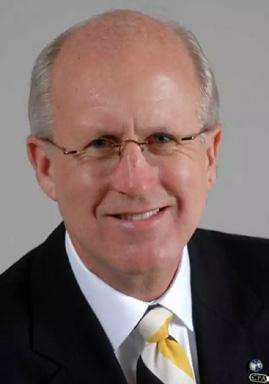
David M.
bipartisan basis to make needed fiscal reforms become a reality. The result was four years of budget surpluses and two years where debt held by the public was reduced. In addition to getting a President who will use the bully pulpit and lead on this issue, the following three steps are essential to restore fiscal sanity and sustainability.
When you add other liabilities and unfunded social insurance obligations, the total federal financial sinkhole is over $125 trillion and growing faster than the economy.
Despite the above, the current major Presidential candidates and top Congressional leaders are providing no real leadership to address the large, known, and growing federal debt bomb that threatens our future economic and national security, international standing, and domestic tranquility. It is clear that the biggest deficit in Washington is a leadership deficit!
The last President who was fiscally responsible was Bill Clinton. He used the bully pulpit and worked on a
First, Congress needs to pass, and the President needs to sign the House Fiscal Commission Act. This Act would create a bipartisan commission that would actively engage the American people and make a package of recommendations to Congress for an up or down vote. Everything would be “on the table” but not everything is equal. The most likely result is to adopt pro-growth policies, reduce prospective spending, and raise future revenues that will reduce public debt/GDP to a reasonable and sustainable level by a future year certain. The public recognizes that excessive spending is the primary problem, but the public also understands that additional revenues will be needed to restore fiscal sanity and sustainability. Representative groups of voters have supported a 3:1 ratio of prospective spending reductions, including interest, to revenue increases.
Second, the debt ceiling has failed to constrain the growth of government and prevent mounting debt burdens. The only thing that can constrain current and future Congresses is a Constitutional amendment that will limit how much public debt/GDP the federal government can take on absent extremely limited and extraordinary circumstances (e.g., a formal
declaration of war). If Congress will not propose such an amendment, the states should through a Convention of States under Article V of the Constitution.
Third, we need a statutory Grace Commission on steroids to review and recommend a rationalization of the base of government for consideration by Congress and the President. The truth is the current federal government is engaged in activities far beyond those envisioned by the Constitution and many agencies have expanded their mission beyond their statutory charge. In addition, most federal agencies are focused on inputs and outputs rather than on generating positive outcome-based results that benefit the American people.
been supported by a super-majority of representative groups of American voters. You can find out more about the book at www.americain2040.com
Unbelievably, we now spend more on interest than defense, and interest is now our fastest-growing expense for which we get nothing!
America is a great country, but our future is at risk. The time is now to pressure our political leaders to recognize reality and take the steps necessary to make the tough choices needed to ensure that our future is better than our past. We owe it to our country, families, and future generations to do no less. RF
Given the above, I authored my latest book entitled America in 2040: Still a Superpower? A Pathway to Success (April 2024). It represents a wake-up call, a call to action, and a way forward. Most importantly, it includes a broad range of illustrative reforms that have
David M. Walker is a nationally and internationally recognized expert in government transformation and fiscal responsibility. He has over 40 years of executive level experience in the public, private, and non-profit sectors, heading three federal agencies and two nonprofits, including serving as Comptroller General of the United States and CEO of the U.S. Government Accountability Office (GAO) from 1998-2008.

Last month, the House of Representatives passed my bill, the Antisemitism Awareness Act, with overwhelming support by a vote of 320 to 91. The legislation requires the Department of Education to consider the International Holocaust Remembrance Alliance Working Definition of Antisemitism and its contemporary examples when investigating discrimination cases on college campuses. This would streamline the process for investigating complaints and ensure antisemitic incidents are called out for what they are. The bill is modeled after an Executive Order offered by President Trump that has been kept in place by the Biden Administration, but codifying this policy strengthens its impact and ensures meaningful enforcement from the Department of Education.
There has been a lot of misinformation about this legislation emanating from its detractors on both the far left and the far right. So it’s important not only to understand what this legislation does, but also what it doesn’t do. The Antisemitism Awareness Act does nothing to limit the expression of one’s religion or freedom of speech. In fact, these freedoms are specifically protected in the text of the bill, “nothing in this Act shall be construed to diminish or infringe upon any right protected under the First Amendment to the Constitution of the United States.”
incidents on college campuses across our country, violence against Jews has gotten even worse. A Jewish Yale student was stabbed in the eye by a Palestinian flag; Jewish students at Cooper Union were barricaded into the university library for safety; and Jewish students at UCLA, Columbia, and others were physically blocked from attending class, being told “Zionists go home” and “Go back to Poland.” We just marked the 80th anniversary of the Allied invasion of Normandy. The heroes of our Greatest Generation would be shocked, eight decades later, to see rhetoric and actions in our country reminiscent of the regime they vanquished.
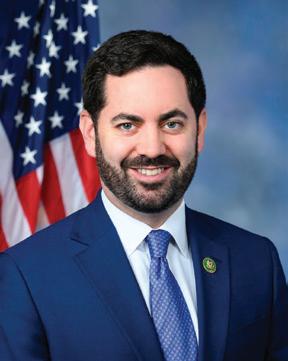
I saw the consequences of this vile behavior firsthand during my recent trips to Columbia University, where I heard directly from Jewish students and met with members of Columbia’s administration. What I heard shocked me. Jewish students said they couldn’t attend classes without facing verbal or physical assault and harassment. Meanwhile, administration officials tried to justify their lax enforcement of campus policies by claiming negotiating with antisemitic students was more productive than confronting them. It is astounding to me that left-wing academics and campus leaders who have long championed “safe spaces” and decried “microaggressions” are unwilling to condemn threats against Jewish students with the same intensity that they would condemn attacks against students of a particular race, gender, or sexual orientation. My position from the start has been this: if colleges won’t act to protect the safety of their own students, Congress has a responsibility to do so. That’s exactly what we in the House did in passing the Antisemitism Awareness Act.
Jewish citizens account for 2.4 percent of our population, yet they are the targets of about 60 percent of religious hate crimes.
I am a Christian. The idea that I would support any legislation discriminating against individuals who share my faith is ludicrous. So is the notion that this legislation could ever be used to stifle debate over American or Israeli policy, of which there is plenty.
What we are seeing on college campuses and in so many places across our country right now is not debate over policy or the expression of religious views. What we are seeing is blatant discrimination, harassment, and outright acts of violence against Jewish Americans. Jewish citizens account for 2.4 percent of our population, yet they are the targets of about 60 percent of religious hate crimes. And in the wake of antisemitic
This is not a free speech issue - it’s a student safety issue. We cannot sit idly by as protesters on college campuses across the country intimidate and harass their Jewish classmates. We cannot, as the recent testimony of college presidents on Capitol Hill seemed to advocate, wait for an actual genocide of Jews in order to condemn the advocacy of genocide against Jews. The Antisemitism Awareness Act will finally require the Department of Education to address the antisemitism we’ve seen sprout up at colleges and universities head-on. I reiterate my call to Senate Majority Leader Chuck Schumer to bring this bill up for a vote in that chamber without further delay. Time is of the essence. Jewish Americans deserve nothing less. RF
Mike Lawler proudly represents New York’s 17th Congressional District which includes Rockland County, Putnam County and portions of Westchester and Dutchess counties.
The recent push by the U.S. government to force the sale of TikTok underscores a significant pivot in how national security concerns are increasingly entangled with the digital economy.
What is critical to understand is that this move is not just about a single app but speaks to a broader anxiety about how American data is handled by companies under the jurisdiction, or influence, of foreign governments, particularly China.
The threshold questions moving forward revolve around the effectiveness of these steps in securing American data, identifying gaps in the current strategy, and discussing the broader implications for international data flows and trade.
The primary rationale behind the forced sale of TikTok is to mitigate risks related to data privacy and national security. TikTok, owned by Beijingbased ByteDance, has raised concerns about the potential for user data to be accessed or misused by the Chinese government. By mandating a sale to a U.S.-based company, the federal government aims to ensure that American data remains on American soil, governed by American laws.
First, it assumes that ownership by a U.S. entity automatically guarantees better security and privacy protections. This overlooks the complexity of digital data flows, where data might still be stored or processed overseas, or American companies might acquiesce to foreign government demands for data under certain circumstances.

Aron Solomon
By mandating a sale to a U.S.based company, the federal government aims to ensure that American data remains on American soil, governed by American laws.
In practice, this could enhance data security by subjecting TikTok's operations to stringent U.S. data protection standards, notably those concerning data storage and access. Such a change would ideally put American users' data beyond the reach of foreign surveillance and misuse. However, the strategy of forcing a sale brings with it several shortcomings.
Second, this approach may be seen as setting a precedent that could lead to retaliatory actions by other nations. If the U.S. can force the divestment of a foreign company on national security grounds, other countries might do the same, affecting American businesses abroad.
The gravamen of the problem is that when we focus on the nationality of the owner rather than the security of the data management practices, this is more than likely not the optimal approach to data security. It risks engendering a false sense of security and does not address other vectors through which data might be compromised.
To better secure American data, the U.S. federal government should focus on enhancing and enforcing data protection standards, regardless of the company's country of origin. This would involve developing a clear framework for data security that all companies, domestic and international, must adhere to if they wish to operate in the U.S. market.
It is incumbent on the U.S. not to further delay investing in building stronger international coalitions to establish and enforce global data security and privacy standards. This could mitigate the need for drastic measures like
forced sales, while also promoting a more stable, secure, and forward-looking global digital economy.
The forced sale of TikTok is likely to have profound implications for international data flows and trade. One immediate effect could be the balkanization of the internet, where data flows are restricted based on nationalistic lines. This could and more than likely would undermine the global interoperability of digital services, increase costs for global enterprises, and stifle innovation.
mediate national security concerns related to data privacy, it is a solution with notable and profound design flaws.
A far better approach is one that focuses on universal, stringent, and transparent data security practices, underpinned by international cooperation rather than confrontation.
As digital technologies continue to evolve, the strategies to secure them must be equally dynamic and forwardthinking, lest they hinder the very innovation and global engagement they seek to protect. RF
A forced sale of TikTok by the U.S. government is anything but the magic pill many seem to believe it is.
What’s worse is that this move would lead to a chill in international investments, as companies may perceive higher risks in investing in countries with unpredictable regulatory environments concerning data and digital services.
A forced sale of TikTok by the U.S. government is anything but the magic pill many seem to believe it is. While a forced sale could, arguably, mitigate some im-
A Pulitzer Prize-nominated writer, Aron Solomon, JD, is the chief strategy officer for Amplify. He has taught entrepreneurship at McGill University and the University of Pennsylvania, and was elected to Fastcase 50, recognizing the top 50 legal innovators in the world. Aron has been featured in Newsweek, Fast Company, Fortune, Forbes, CBS News, CNBC, USA Today, ESPN, Abogados, Today’s Esquire, TechCrunch, The Hill, BuzzFeed, Venture Beat, The Independent, Fortune China, Yahoo!, ABA Journal, Law.com, The Boston Globe, and many other leading publications across the globe.

Better technology for a better world.
How Congress Can Take Back the Power of the Purse, Tame the Administrative State, and Reclaim Its Rightful Role in Government
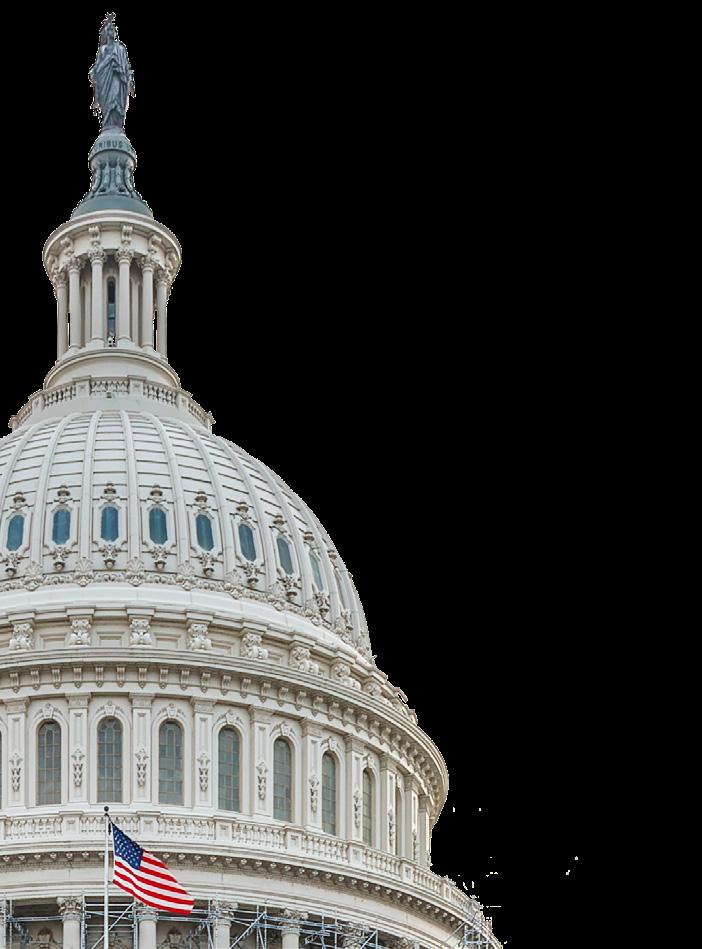
With essays by TIM PENNY & NOLAN MCCARTY, KEVIN KOSAR, BETSY WRIGHT HAWKINGS, KURT COUCHMAN AND DONALD WOLFENSBERGER

The Constitution never envisioned a dominant role for the executive branch of government in spending and taxing decisions (other than, of course, the veto). However, for nearly 200 years, Congress had no clear process to carry out its constitutional responsibilities. Specifically, there was no single congressional committee designated to create an overarching budget.
As a result, what amounted to a budget emerged from the normal legislative process. Authorizing committees decided what programs to create, continue, or eliminate. Appropriating committees would then review what the authorizing committees had approved and decide how much spending to allow for each program. Finally, the House Ways and Means Committee and the Senate Finance Committee would come up with the revenue needed. After this drawn-out process, Congress would have a de facto budget.
encroachments and established a Congressional Budget Office (CBO) and Budget committees in both the House and the Senate.
Congress was back in charge – or so it thought. Gradually, beginning in the 1990s, the House and then the Senate became increasingly tribal with partisan majorities abandoning any pretense of trying to find common ground. In this more partisan environment, members of Congress who belonged to the same partisan team as the President saw it as their role to be adjuncts to the Executive Branch, allowing many of the previous excesses of presidential overreach to return.

Beginning in the 1990s, the House and then the Senate became increasingly tribal with partisan majorities abandoning any pretense of trying to find common ground.
In this more partisan environment, members of Congress who belonged to the same partisan team as the President saw it as their role to be adjuncts to the Executive Branch.
This haphazard and ineffective process was exploited over time by presidential overreach – reflected in the executive refusing to spend what Congress had appropriated, or by spending on things not intended by Congress. But, fifty years ago, Congress took steps to restore its constitutional authority to tax and spend. The Congressional Budget and Impoundment Control Act , enacted in 1974, limited these presidential
President Trump’s reprogramming to fund the border wall and President Biden’s attempts to forgive student loans are just two of the more egregious examples. By giving in to Presidential prerogatives, Congress is abdicating its constitutional power over the purse.
In response to these developments, Princeton University’s School of Public and International Affairs created The Princeton Initiative on Reclaiming the Constitutional Powers of Congress. As part of this initiative, we serve as co-chairs of a Task Force focused on restoring to Congress the “power of the purse.” The Task Force is comprised of former members of Congress from
both political parties and scholars from 19 universities. We believe it is time for Congress to consider additional steps to ensure that Congress meets its constitutional responsibilities. Our proposals are not dramatic. But they are in the spirit of the Congressional Budget Act of 1974 and are long overdue.
Our group’s recommendations fall into two categories. First, improvements to transparency and accountability. Second, expedited congressional review of executive spending.
Congress and the public deserve better access to information on the process of “apportionments” where the Office of Management and Budget in the Executive Branch allocates funds among various agencies involved in similar activities. We could achieve this transparency through a more user-friendly apportionment database and by mandating semi-annual reports by the Government Accountability Office on apportionments. Congress also needs better access to information on expenditures made during government shutdowns. The Antideficiency Act is meant to protect against “coercive deficiencies,” or the rapid spending-down of funds to pressure Congress. Federal agencies should be required to provide program-byprogram information on any money they spend during a lapse in appropriations.
emergency powers to the president with only weak checks on their exercise. To enhance accountability, we recommend that national emergency declarations from any President should expire after 30 days unless Congress affirmatively authorizes an extension. This would give the legislative branch the ability to respond to abuses of emergency powers.
Our group also wants a fast-track congressional review procedure for executive-led spending decisions – using dollars appropriated for one purpose to be spent elsewhere. A president who wants to do so should be required to first submit messages to Congress announcing those plans. Congress would then have a certain period of time to overrule these executive actions.

By giving in to Presidential prerogatives, Congress is abdicating its constitutional power over the purse.
In addition, lawmakers must be able to more easily track when agencies and departments transfer or reprogram federal funds away from the purposes Congress intended. And Congress has a right to know how agencies are imposing and using fees, fines, and penalties. The bottom line is that this transparency is important in assuring that agencies follow congressional intent.
Historically, Congress has delegated substantial
since 1965.“
Our Task Force also advocates for increased training of both incoming and returning members of Congress on budget and appropriation processes. These sessions should emphasize Congress’s constitutional role and authorities, as well as the importance of executive accountability to the legislative branch.
In our view, while these proposals are not revolutionary, they are essential and necessary if we want to restore the checks and balances envisioned in the Constitution. RF
Tim Penny represented the 1st District of Minnesota in the U.S. House of Representatives from 1982 – 1994, and currently serves as President & CEO of the Southern Minnesota Initiative Foundation. Nolan McCarty is the Susan Dod Brown Professor of Politics and Public Affairs at Princeton University’s School of Public and International Affairs. Together, they serve as Co-Chairs of the Task Force on the Power of the Purse, part of the Princeton Initiative on Restoring the Constitutional Powers of Congress.
The administration of Joseph Biden has enacted a recordsetting number of consequential regulations this spring, according to an analysis by George Washington University. In April alone, 66 “significant” final rules were finalized — meaning they “have an annual effect on the economy of $100 million or more or adversely affect in a material way the economy, a sector of the economy, productivity, competition, jobs, the environment, public health or safety, or State, local, or tribal governments or communities.”
All told, Mr. Biden’s administration has issued nearly 250 significant rules since taking office in 2021, a pace that far exceeds any previous president. Big rules are not the only rules being produced by Mr. Biden’s executive branch. The same report tallies an average of 262 rules per month during the President’s term.
Regulations have the effect of law, and the Biden administration has used them to impose policies on major issues that are important to the Democratic party. Recent rules, for example, goad automakers to produce more electrical vehicles, forgive student loans for some borrowers, and reclassify many independent contractors as employees entitled to overtime pay and other federally stipulated benefits and protections.

Mostly, legislators respond to regulations they dislike by issuing press releases, tweeting, and generally making noise. They also introduce Congressional Review Act (CRA) resolutions, a fast-track process that enables majorities in both chambers to rapidly strike down a pending rule. The current Congress has responded to Mr. Biden’s regulatory blitz with a record 109 resolutions. Rarely do CRA resolutions succeed. To take effect, either a president must sign them, Congress must pass them over his veto, or it must time the passage of a resolution so that it lands when a new, more congenial president takes office.
Kevin R. KosarAll told, Mr. Biden’s administration has issued nearly 250 significant rules since taking office in 2021, a pace that far exceeds any previous president.
Whatever one thinks of these policies, making them through regulations circumvents Congress. Indeed, presidents often unabashedly enact regulations contrary to the express will of Congress. Consider Mr. Biden’s efforts to cancel the loans of former college students or Barack H. Obama’s curbs on natural gas “fracking,” both of which were adopted despite the opposition of a GOP-controlled House. To be sure, Republican presidents do the same. Donald J. Trump, for example, sought to alter migrant asylum policies despite the howls of the Democrats holding the lower chamber. In each of these instances, the president could not get a statute through both chambers and chose to impose their policies through rulemaking.
All too frequently, Congress relies on the courts to protect its legislative authority. This sometimes works; the Supreme Court and federal benches struck down Biden’s initial student loan forgiveness policy, Trump’s asylum rule, and Obama’s fracking restriction. But it is a crapshoot, and there is little to stop a determined president from continuing to try to use regulatory authority to get what he wants. President Biden, for example, has moved forward with student loan cancellation and declared, “I will never stop working to cancel student debt –no matter how many times Republican elected officials try to stop us.”
But only the biggest regulations end up in the courts, which means that usually the executive branch gets what it wants. Despite the U.S. Constitution’s insistence that “All legislative Powers herein granted shall be vested in a Congress of the United States,” the presidency is making a lot of policy. There are now 186,000 pages of federal regulations, more than triple the quantity in the mid-1970s, which is to say nothing of the innumerable agency guidance and explanatory documents (“regulatory dark matter”) that also specify how policy works.
Sure, the public can participate in “public comment” during the rulemaking process, but few do, and even those who do likely will find their comments brushed off by agencies bent on doing what they think best. The growth of the administrative states has
made for a hollowing out of representative government.
It does not have to be this way. Congress can regain its fumbled-away legislative authority. Certainly, a direct means to that end would be to reduce the size of the federal government, which has perhaps 180 executive and independent agencies producing rules. But cutting government is difficult, and even if it were successful Congress would remain largely hapless in dealing with the regulation issued by the remaining agencies.
Why? Because regulation is really complex and Congress has no staff dedicated to helping it oversee it. Consider, for example, the elected official who sees the Centers for Medicare & Medicaid Services’ proposed rule to modify the “Health Insurance Portability and Accountability Act National Council for Prescription Drug Programs Retail Pharmacy Standards.” The policy is 27 pages long and chockfull of technical terms and inscrutable policy lacunae and has a price tag of $386.3 million. Said legislator and his staff have a snowball’s chance in Hades at understanding it to say nothing of improving it.
Congress can give itself the power to forcefully engage in regulatory policy by establishing a Congressional Regulation Office inside the legislative branch.
a Congressional Regulation Office (CRO) inside the legislative branch. Staffed by perhaps a couple hundred nonpartisan experts, the CRO would perform benefit-cost analyses of agencies’ significant rules in order to provide a disinterested check on agencies’ self-interested math. These CRO scores should be posted online, submitted as public comments, and delivered to Congress’s committees.
The CRO also should deliver reports assessing the efficacy of existing regulations and provide advice for fixing or deleting bad, anachronistic, or needlessly expensive. All of which would help Congress better write laws that better direct the executive branch’s implementation.
Congress would need to spend perhaps $50 to $75 million per year to run a Congressional Regulation Office. GOP legislators might flinch at the idea of spending more public funds on Congress, but that would be pennywise and poundfoolish. The CRO would be a net benefit to the nation if it helped Congress reduce the cost of just a few of the major regulations each year. RF
My American Enterprise Institute colleague, Philip Wallach, and I have argued that Congress can give itself the power to forcefully engage in regulatory policy by establishing
Kevin R. Kosar is a senior fellow at the American Enterprise Institute and the editor of UnderstandingCongress.org

At Netflix, we want to entertain the world. Whatever your taste, and no matter where you live, we give you access to best-in-class TV series, documentaries, feature films and games. Our members control what they want to watch, when they want it, in one simple subscription. We’re streaming in more than 30 languages and 190 countries. We are the world’s biggest fans of entertainment, and we’re always looking to help you find your next favorite story.
Proud to Support the Ripon Society
Total Pages in the Code of Federal Regulations

Total Pages in the Federal Register
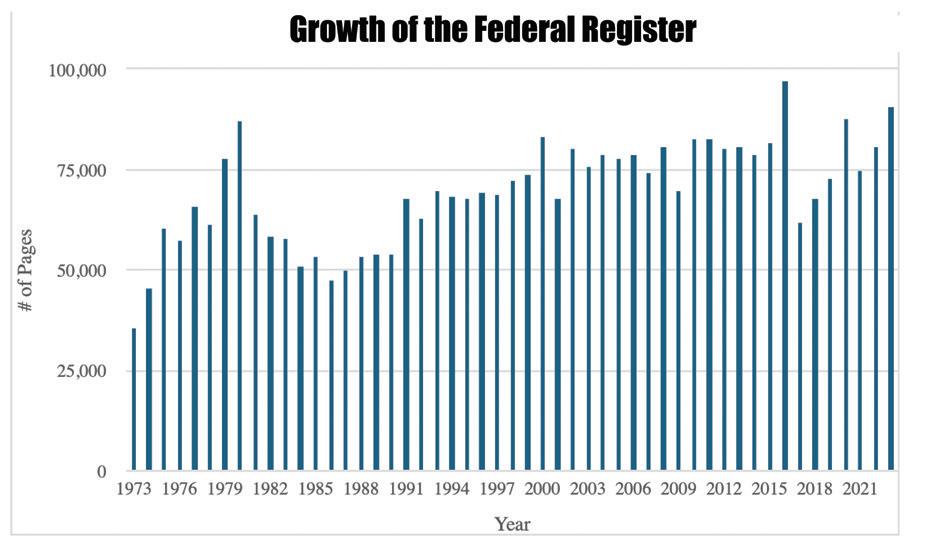


The American Property Casualty Insurance Association (APCIA) is the primary national trade association for home, auto, and business insurers.
APCIA promotes and protects the viability of private competition for the benefit of consumers and insurers, with a legacy dating back 150 years. APCIA members represent all sizes, structures, and regions—protecting families, communities, and businesses in the U.S. and across the globe.
The insurance industry contributed more than $664.6 billion to the nation’s GDP (2.5%).1
PROPERTY CASUALTY INSURERS PROVIDE:
JOBS to more than 443,000 employees across the country.2
WAGES totaling more than $46 billion, which help to drive the U.S. economy.2 1.
In early 2016, following a year-long study in collaboration with the William and Flora Hewlett Foundation, the Democracy Fund published a systems map diagnosing the drivers of hyper-partisanship undermining a functioning Congress.
It pointed to three significant trends: (1) increased competition for the House and Senate majorities; (2) the nationalization of congressional elections with increased demand for partisan purity hypercharged by the rise of social media and the collapse of local news; and (3) reduced congressional resources. All have led to diminished congressional capability to solve problems, reduced trust in the institution and even greater disengagement by an already disaffected public.
But the report also laid out a strategy to mitigate the dysfunction: increase the capacity of Congress to legislate and solve problems, upgrade its legislative tools and internal operations, and curb the power the “political industrial complex” has in the institution. Hewlett, Democracy Fund and others focused significant new resources on this strategy, and three years later the House Select Committee on the Modernization of Congress was established “to recommend improvements … to help members of Congress and their staff better serve the American people.” Over four years, its six Republicans and six Democrats reported 202 recommendations – all but two unanimously.
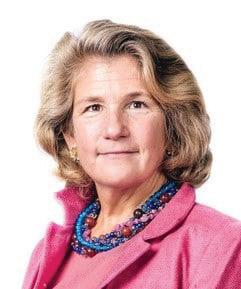
san oversight capacity, boosting staff capacity and compensation, upgrading district operations, ensuring continuity after a mass casualty, upgrading technology, streamlining the legislative process, reducing committee scheduling conflicts, and improving constituent engagement. Importantly, last year the Committee on House Administration created a permanent Subcommittee on Modernization to ensure implementation of remaining recommendations and an ongoing commitment to improvement – so that “modernization” is no longer something the House thinks about, as it often has, just once in a generation.
Among the most potentially sustainable contributions the “ModCom” made to the House, however, could be how it worked to achieve what it did. It was genuinely bipartisan, with the same number of Republicans and Democrats. (Only the Ethics Committee could previously say that.)
More than 150 of the recommendations have been fully or partially implemented. They address a broad array of goals: increasing civility and bipartisanship, expanding accessibility to Congress for staff and the public, enhancing opportunities for collaboration, bolstering congressional support agencies, promoting impartial data use and analysis in policymaking, strengthening effective biparti-
Increased competition for the House and Senate majorities … the nationalization of congressional elections with increased demand for partisan purity … reduced congressional resources. All have led to diminished congressional capability to solve problems.
At the initiative of Chair Derek Kilmer (D/WA-6), the ModCom was co-led by Vice Chairs Tom Graves (R/GA-14) in the 116th Congress and William Timmons (R/SC-4) in the 117th Congress. There was a single budget rather than the usual majorityminority split. The Democratic and Republican staff directors shared the same staff. All members met together to receive briefings, set priorities, and refine recommendations before voting. They all worked to agree on a shared understanding of problems, holding retreats early in 2019 and 2021 to set common priorities. This process led to hearings where Democrats and Republicans alternated seating at round tables instead of dividing along party lines on the usual tiered dais, and where the usual rule allocating five minutes to each member for questions was suspended so members could pursue more thoughtful questions. This practice has been continued by the Modernization Subcom-
mittee under Chair Stephanie Bice (R/OK-5).
Mr. Kilmer and Mr. Timmons liked to say, “We are all on the same team; we don’t wear red jerseys and blue jerseys, we wear ‘Fix Congress’ jerseys.” (Yes, they had actual “FixCongress” jerseys made; see below). The ModCom’s profile was not high, but those who knew its work felt better about Congress. And despite many indicators to the contrary, according to some assessments, the last four years have produced some of the most bipartisan legislation in decades.
So how can we measure Congress’ capacity to live up to evolving challenges? The Supreme Court may soon force the issue. Its decisions in Loper Bright Enterprises v. Raimondo and Relentless v. Department of Commerce may well increase Congress’ responsibility for detailed policymaking – shifting power that’s been in the executive branch since the court’s 1984 Chevron v. NRDC decision. This shift would require a significantly higher level of legislative capacity than Congress has seen in decades.
As the ModCom showed, operating at a higher level must start with members better knowing one another – not just across the aisle, but also within their caucuses. It also requires ending proxy voting, especially in committees; empowering more nimble support agencies; utilizing committee markups rather than bringing legislation directly to the House floor; conducting fact-based, bipartisan oversight; reauthorizing programs on time; and allowing more amendments debated on the floor under open rules – even if that means “tough votes” for members of both parties.
Specifically, CEL identifies the number of bills each member sponsored and the number of those bills that received action in committee or beyond. It also identifies how many of those bills passed the House, and how many became law. It categorizes bills as being commemorative, substantive, or “substantive and significant,” based on Congressional Quarterly criteria.
David Leonhardt of The New York Times has through his reporting summarized the criteria for a healthy Congress as well as anyone: leaders who negotiate, but not publicly; a cadre in each party willing and able to talk to the other side; a president who keeps talking and does not take things personally; and ideologues willing to be practical and accept less than total success.

Bottom line: We need senators and representatives who prioritize relationships, understand that making our system work requires collaboration and compromise, have the capacity and commitment to develop those relationships, learn policy and negotiate those compromises; and prioritize communicating their value to the American people. We need leaders.
Operating at a higher level must start with members better knowing one another – not just across the aisle, but also within their caucuses.
It can be disappointing to see so many members leaving Congress at a time when their expertise is sorely needed. The institution is no better or worse than the people in it, and the power to change it – or not -- is in their hands. The job of leaders is to shape the future. It will take time. But if Congress continues to build on the work of the Modernization Committee, expanding its capacity and expertise to serve the American people, it will make a difference. It can make all the difference. RF
Tracking members’ policymaking success can provide an important incentive to increasing their collective capacity and was a part of the Democracy Fund / Hewlett strategies. One notable effort is The Center for Effective Lawmaking (CEL), a project of the University of Virginia and Vanderbilt University, which developed 15 indicators to assess legislators’ success at advancing their agenda through the legislative process – and, thereby, strengthening Congress’ ability to function.
Betsy Hawkings served as chief of staff to four Republican House members over 25 years and was awarded the Eph Creswell Congressional Staff Leadership Award in 2014. She spent four years leading the Democracy Fund’s Governance Program before opening her own consultancy, Article One Advisors LLC, and was a staff fellow with the Select Committee on the Modernization of Congress from 2020-22.
Congress is saturated with information. America’s bestresourced legislature has robust capacity too. Why, then, doesn’t Congress perform better?
It delays until problems become crises, lets waste persist, fails to modernize the laws, and excludes most members from deliberations. The ability of congressional committees to drive policy is weak, partly the legacy of using concentrated leadership power to break committee fiefdoms that existed before Republicans led by Newt Gingrich won control of the U.S. House of Representatives in 1994.
Congress exists to harness distributed knowledge, experience, and judgment to discover tolerable, mutual accommodations within the federal government’s proper scope. As that scope has sprawled, committees should have become even more important. Committee deliberation and specialization can provide opportunities to make legislative service rewarding and to solve problems.
Congress has two basic duties: designing programs and funding them. Yet Congress’ budget practices don’t work well. Few members can shape appropriations, the small share of the budget that gets regular review. The twelve Appropriations Committee bills fund important activities, but those activities include only 26 percent of spending and do not include taxes or borrowing.
example, would create a real budget that includes everything. Each year, each committee would manage its direct spending and revenue portfolio within the budget resolution’s constraints. Authorizing committees would transmit their packages to the Appropriations Committees, where they’d get bundled with the appropriations bills and become the budget bill for floor consideration.

The ability of congressional committees to drive policy is weak, partly the legacy of using concentrated leadership power to break committee fiefdoms that existed before Republicans led by Newt Gingrich won control of the House in 1994.
Members of most committees have no regular way to affect budget outcomes, let alone manage programs holistically. Resolving minor issues requires major efforts, leaving bigger challenges unaddressed. Pressures are building, and the federal government is lumbering toward a debt crisis.
Fortunately, there is hope.
The Comprehensive Congressional Budget Act, for
The CCBA would transform the budget resolution from a partisan messaging vehicle into a blueprint for governance. And if the House and Senate couldn’t agree to a budget resolution by April 15, the budget chairs would set committee limits from CBO’s baseline.
Likewise, one committee’s drama wouldn’t derail everything. If a committee deadlocks, the Appropriations Committee would insert that committee’s current-law line items as a placeholder.
This comprehensive budget would replace reconciliation. Meant to reduce red ink, reconciliation has become a tool of temporary, oneparty control to avoid the Senate filibuster and, usually, to increase deficits.
A comprehensive budget’s committee-negotiated mini-deals where tradeoffs are real would let Congress chip away at problems each year. More opportunities to build ad hoc coalitions would improve the culture by encouraging collaboration and discouraging confrontation.
A budget cycle that starts and ends on time would be another big improvement. The Prevent Government Shutdowns Act would achieve this goal by forcing Congress to stay in D.C. and finish budgeting if it isn’t done before the fiscal year starts. Meanwhile, the country would be spared from shutdown disruptions. Needing to earn votes would push budgeting
toward a more inclusive, bottom-up Congress with more room for members and committees to advance ideas.
Finishing on schedule would help the next cycle start on time. So would Congress requiring the president to submit his budget request and the national security strategy before giving the State of the Union address, as proposed in the SUBMIT IT Act These reports give Congress and its committees useful information for each year’s budget and authorization legislation.
Defusing the debt limit and reclaiming emergency powers would reduce opportunities to bypass committees as well. In addition, the authorizing process could work better. To begin, each conference should explicitly instruct committee leaders to review and update laws in their jurisdictions. Otherwise, it’s too easy to let emerging issues crowd out making sure the laws are sensible.
Members and staff are often unsure which committee covers an issue. Each house should have a resource matching committees with the laws for which they’re responsible.
Reading congressional legislation is unusually difficult. Most state legislatures print bills showing proposed changes within the full sections of law they’d amend. The Readable Legislation Act would help Congress do the same.
Excessive hurdles may discourage members from developing and promoting legislation. House Rule 14(4) imagines that committee chairs take turns bringing reported
measures to the floor. “Special rules” for taking up legislation displace that rule. Committee-driven floor scheduling could grease the skids for more creative updates to standing laws.
Committee deals are most likely to work for the entire body when committee membership is a microcosm of the whole. Better balancing regional, ideological, and other differences in each committee would free leaders from having to make and sell as many tough calls.
Finally, resource allocation matters. Senate committee membership and funding follow the ratios between the majority and minority caucuses. The House majority party has a disproportionate share of committee slots and two-thirds of each committee’s budget. The Senate approach preserves institutional knowledge and better aligns prospects for committee and floor approval.
Congress should make – and remake – federal policy, but it doesn’t use its vast resources effectively.
A better budget process and clearer paths to programmatic changes could make all the difference. Empowering the committees to drive policy could get many more members of Congress off the sidelines to solve problems for the American people. RF
Kurt Couchman is senior fellow in fiscal policy at Americans for Prosperity.
The House Rules Committee has often been called, “The Speaker’s Committee.” That’s because it is the chief scheduling arm of the majority leadership for clearing major legislation for House floor consideration. It devises special rules to give important bills priority floor status and establish the terms for their debate and amendment.
However, the moniker of “Speaker’s committee” has lost some of its stature and respect in the current Congress. Seven special rules have been defeated by the House, meaning at least some Republicans have joined with Democrats in blocking the bills scheduled for floor consideration that week.
Moreover, on one occasion, three of the nine Republican members of the committee stood firm in committee opposing a special rule for a border bill the Speaker had asked for. Their opposition forced the Speaker to instead offer four bills relating to international security and humanitarian assistance to Ukraine, Israel and Taiwan and appeal for Democratic votes to carry the rule and measures it made in order.
On other occasions the Speaker has scheduled must-pass bills under “suspension of the rules” to bypass the Rules Committee, counting on Democratic support to achieve the twothirds vote required under that process.
Is this the new normal? Has the Speaker, as some of his GOP critics charge, transformed the House into a uniparty institution in which only bipartisan legislation can be considered and passed?

and where it’s been, it’s helpful to review a brief history of its 225-year existence. The committee is the oldest committee in the House. It was born on April 2, 1789, as a select committee of the First Congress to recommend a set of rules by which the House could operate. It continued to exist for the next 90 years as a select committee to recommend any changes in the rules. In 1858, the Speaker became a member of the committee, and the next year, he became its chairman.
Donald R. Wolfensberger
Seven special rules have been defeated by the House, meaning at least some Republicans have joined with Democrats in blocking the bills scheduled for floor consideration that week.
Many veteran observers think that is not the case, and that the unique situations cited above are simply one-offs – that the House has and will continue to return to majority party rule as before. The House Rules Committee will continue to matter, they say, as the pivot point and wheelhouse in facilitating the leadership’s legislative agenda.
To get a better grasp on where the Rules Committee began
Finally, in 1880, the House made it a permanent standing committee, with the Speaker still at the helm. In 1889 - 90, Congressman Thomas Brackett Reed (R-Maine) was elected Speaker, and thereby the Rules Committee chairman. He transformed the committee and the House dramatically. As Speaker (and a Progressive Republican), he issued rulings from the chair to break up obstructive tactics by the Democrats, such as the “disappearing quorum,” in order to permit the consideration of major bills. He would then go to the Rules Committee as its chairman to ensure those rulings were enshrined in the standing rules of the House.
His other major innovation was using the Rules Committee as a scheduling mechanism through the use of special rules, also known as “order of business resolutions.” Not only did they enable the leadership to elevate bills that were at the bottom of the calendar to privileged status on the floor, but they allocated debate time and the amendment process.
The special rules could also waive any standing rules that might be in the way and even “self-execute” the adoption of amendments or pass entire measures on the nod by their language.
As minority party detractors would sometimes charge, it was really the “Unruly Committee” because its tactics and procedural gymnastics went against the grain of what was thought to be the regular order of the rules process.
Speaker Reed’s Republican successor as Speaker and Rules Committee chair was “Uncle Joe” Cannon of Illinois – a
conservative stalwart compared to Reed’s progressive bent. Cannon didn’t think any new legislation was needed since “everything’s just fine back in Danville,” his home town in Illinois. After a decade as chair, he succumbed to a bipartisan coup in 1910 by Democrats and liberal Republicans that removed him as chair and member of the Rules Committee. He then entertained a motion to remove him as Speaker, and a Democrat obliged. But Cannon’s Republican colleagues stuck by him on that vote.
civil rights bills.With the sorting of the parties in the late 1960s and 70s, and the congressional reform revolution of the latter decade, the House and Rules Committee returned to a moderate ruling majority.
Is this the new normal? Has the Speaker, as some of his GOP critics charge, transformed the House into a uniparty institution in which only bipartisan legislation can be considered and passed?
Republicans lost control of the House anyway in the 1910 elections. The new Democratic majority increased the Rules Committee’s size from five to 12 members – eight majority and four minority. And they turned to their majority caucus (not the Speaker), for decisions on legislative procedures and priorities.
In the mid-20th Century, a conservative coalition of southern Democrats and Republicans became a dominant ruling group in the House. On the Rules Committee, two southern Democrats, “Judge” Howard Smith of Virginia and Bill Colmer of Mississippi, would join with the four Republicans to sometimes block, by 6-6 tie votes, important legislation like

Even with the Republican House takeover in 1995, the parties’ roles were well defined. They simply exchanged playbooks whenever majority control flipped. But the Rules Committee remains at the center of the action. It has demonstrated over two centuries that it adapts to a changing House, just as the House has done to it. It still matters. RF
Donald R. Wolfensberger is a Congress Scholar at the Wilson Center and previously directed its Congress Project from 1999-2012. He is author of “Congress and the People: Deliberative Democracy on Trial” (2000) and “Changing Cultures in Congress: From Fair Play to Power Plays” (2018). He previously served as a staff member in the U.S. House of Representatives (1969-1997), rising to the position of Chief of Staff of the House Rules Committee.
App-based rideshare and delivery helps drive the U.S. economy
Rideshare and delivery platforms facilitated more than 4 3 billion rides and deliveries by 7 3 million workers in 2022 across the U S
The result: The app-based industry contributed $212 billion to the U S economy
learn more at flexassociation org
Flex is proud to support the Ripon Society


Should the Social Security Retirement Age Be Raised? Yes, it will protect and improve the program.by RACHEL GRESZLER
If Congress does nothing to address Social Security’s shortfalls, benefits will be cut by 21 percent, across the board, and beginning in just nine years—in 2033. That means that anyone who is of Generation X or younger will not receive a single full benefit. Even Baby Boomers and Silent Generation retirees will be subject to cuts.
Simply raising taxes to prevent these benefit cuts would require Social Security’s 12.4 percent tax rate to rise, immediately, to somewhere between 15.7 percent and 17.5 percent—the equivalent of an extra $2,500 to $3,800 per year in taxes for the median household.
Raising taxes only on the wealthy would require a top combined federal and state income tax rate of 66 percent. And that wouldn’t include a dime towards Medicare’s even larger shortfalls or the federal government’s annual multi-trillion-dollar budget shortfalls.
Instead of massive tax increases that would unnecessarily burden younger and future generations, Social Security reform should focus on restoring the program’s original intent.
cy at birth was 61 and the program’s retirement eligibility age was 65, so many people never received Social Security. Today, life expectancy at birth is 79 and Social Security has an early retirement eligibility age of 62 and a normal eligibility age of 67.

Instead of massive tax increases that would unnecessarily burden younger and future generations, Social Security reform should focus on restoring the program’s original intent.
As a Great Depression-era program, Social Security sought to protect against poverty in old age and to prevent younger generations from bearing the financial burden of that protection. Today, younger generations bear 100 percent of the program’s costs as every dollar of Social Security benefits comes straight out of current workers’ paychecks instead of from retirees past payroll taxes.
This happened because Social Security benefits have continued to rise in real terms and Americans are living longer. When Social Security was enacted, life expectan-
Increased life expectancies, improved healthcare, and the shift away from physically demanding work have increased older Americans’ work capacity. A 2016 study published by the National Bureau of Economic Research looked at life expectancy, health, and employment since the 1970s and concluded that Americans could work an additional 2.5 years to 4.2 years, which would be equivalent to a 30 percent to 50 percent increase in employment among 65-year olds.
To restore Social Security’s intent, policymakers should gradually increase the normal retirement age from 67 to 69 or 70—moving the age up by one or two months per year—and index it to life expectancy.
The benefits of older workers staying in the workforce expand beyond Social Security’s solvency, and the additional income that Americans would earn. Older workers’ wisdom and experience provides an invaluable insight and mentorship to younger workers. And today’s labor market affords increasing opportunities for older workers to gradually ease into retirement, instead of abruptly exiting their careers.
While an increase in Social Security’s retirement age could disproportionately hurt people who have physically demanding jobs or who are in poor health, Social
(cont’d on page 24)
Should the Social Security Retirement Age Be Raised? No, it will put older workers needlessly at risk.by KYLE ROSS
Social Security is a key component of the American Dream. After decades of hard work, retirees should be able to rest easier knowing Social Security will cover at least some of their most basic living expenses so they can live out their golden years with some breathing room. For many, these benefits are the main source of income allowing them to retire in the first place.
The latest government projections suggest Social Security will continue to be able to pay 100 percent of all combined retirement and disability benefits until 2035. At that point, it’s anticipated there will only be enough funds to pay 83 percent of scheduled benefits, primarily due to the aging baby boomer population and relatively low birth rates for subsequent generations. One suggested workaround to prevent this dip is raising the age a person must reach in order to access full retirement benefits, as well as raising the minimum age required to withdraw those benefits early. However, doing this would push more older individuals below or near the poverty line.

seen over the past few decades, as well as projected future increases. It’s important to note that these increases are not shared equally, because people with larger incomes and higher levels of education are more likely to have higher life expectancies, while those with less have experienced fewer or no gains at all, and evidence suggests that gap is widening. Delaying the age when people can access Social Security would harm those who rely on it the most.
Kyle RossIncreasing the full retirement age for Social Security cuts benefits for all new retirees.
In truth, increasing the full retirement age for Social Security cuts benefits for all new retirees. The size of that cut varies slightly by age, but it typically amounts to a 6-7 percent cut for each year the retirement age is increased past age 67. Currently, 62 is the most common age Americans begin claiming retirement benefits, with over 800,000 people doing so in 2022 alone. If the minimum age were to be increased as well, it would force many people to delay their early retirement plans, or endure some years without benefits or a job.
A primary motivator behind these proposed age requirement increases is the rising life expectancy we’ve
In fact, some of the people most likely to suffer the consequences of raising retirement ages are the millions of older workers performing physically demanding jobs, especially in rural communities. From farmers and truck drivers to construction laborers and building cleaners, estimates show that roughly a third of workers ages 55 to 64 hold physically challenging jobs that only grow more difficult with age as their risk of injury and disease increases. Many of these workers cannot and should not be expected to continue working well into their sixties, especially considering they often have to retire early due to health issues. But increasing Social Security’s minimum retirement age would leave them with few good options. Due to these workers earning disproportionately low wages, they’re less likely to have stored up enough savings sufficient to sustain them after they retire. One estimate suggests only around half of all middle-income older households have any savings stored in a retirement account, while the same is true for less than a fifth of older households with lower incomes. Among the people surveyed who did have some retirement savings stored, middle and low-
(cont’d on page 24)
(Ross, cont’d)
income households typically held account balances of around $80,000 and $35,000 respectively, hardly enough to live on for a few years in many cases.
Retirees who are forced to stop working because of their health can also turn to Social Security’s disability insurance program or Supplemental Security Income for financial support. However, eligibility requirements are so strict that around two-thirds of applicants get denied. Those fortunate enough to get accepted will have navigated an application process packed with administrative burdens, meaning it could have taken years for the applicant to begin receiving benefits from the time they applied. Simply put, raising retirement ages takes Social Security away from workers who need to retire early without providing an alternative.
A proposal like this would be carried out in the name of fiscal responsibility, but the well-being of hard-working older Americans shouldn’t be sacrificed to keep Social Security afloat.
hard-working older Americans shouldn’t be sacrificed to keep Social Security afloat. The revenue needed to protect benefits from being cut can be collected elsewhere—a significant amount could be raised, for instance, by increasing the amount of earnings subject to Social Security’s payroll tax higher than the current level of $168,600, which would only impact high-income workers.
A proposal like this would be carried out in the name of fiscal responsibility, but the well-being of
(Greszler, cont’d)
Security’s Disability Insurance program provides full Social Security benefits to individuals who lose the ability to work before reaching Social Security’s retirement age. Of course, a retirement age update should be paired with much-needed improvements to the Disability Insurance program.
While updating Social Security’s retirement age is an important component of reform, it would only solve about 20 percent to 30 percent of the program’s shortfalls. A more accurate inflation adjustment would solve another 20 percent to 25 percent of the program’s shortfalls.
And gradually shifting Social Security towards a universal benefit would cover the rest of the shortfalls and allow for a roughly 20 percent reduction in Social Security’s tax rate (that’s compared to the 27 percent to 41 percent tax increase that’s needed just to maintain current benefits).
As a social insurance program aimed at preventing poverty, it doesn’t make sense that Social Security
People who have worked for decades deserve to be able to retire and do so with dignity. Any funding proposal for the Social Security program that would negatively impact access to this fundamental right or would cut the lifeline many retirees rely on would mean jeopardizing the health and economic stability of the people it serves.
RF
Kyle Ross is a policy analyst for Inclusive Economy at the Center for American Progress.
Shifting to a universal benefit would increase benefits for about one-third of workers with the lowest incomes.
provides the highest benefits to people with the highest incomes. Shifting to a universal benefit would increase benefits for about one-third of workers with the lowest incomes. And although middle- and upper-income earners would get less than the current formula stipulates, all but the highest-income earners would receive more than a non-reformed Social Security program will provide. By allowing workers to keep more of their earnings, these Social Security reforms would empower Americans to have more control over their finances before and during retirement. And coupling these reforms with an ownership option—allowing individuals to put a portion of their Social Security taxes into a personally-owned account—would help more Americans build wealth that they own and can pass on to their heirs.
Rachel Greszler is a senior research fellow in workforce and public finance in the Thomas A. Roe Institute for economic policy studies at The Heritage Foundation.



The National Association of Home Builders (NAHB) urges Congress to fully fund Job Corps. Preparing the skilled trades professionals of the future is critical when our nation needs more homes but lacks the workforce needed to meet demand.
With more than 120 centers across all 50 states, Job Corps is the nation’s largest career training program. The Home Builders Institute (HBI), NAHB’s workforce development partner, is Job Corps’ largest skilled trades training provider. HBI graduates are transforming their communities and building America’s homes.
It is critical that Congress fully fund Job Corps.
HBI.org

NAHB is proud to support the Ripon Society.
WASHINGTON, DC – In remarks May 23rd before a breakfast meeting of The Ripon Society, U.S. Sen. Joni Ernst (R-IA) blasted the Biden Administration for its heavyhanded approach to government regulation, saying it is not only driving up costs for American businesses, but driving up prices for hard-working American families who are struggling to make ends meet.
Ernst opened her remarks by talking about another pressing challenge facing families and businesses she represents –the challenge of recovering from recent tornados that have devastated communities in her home state.
Minden, which was also devastated. Sixty percent of the community was wiped out just about a month ago … So, I would ask that you all just say a little
growth.
She talked about this effort in her remarks yesterday morning, and what she is hearing about the economy as she meets with workers and business owners back home.

“Bidenomics is not working for families in Iowa.”
U.S. Sen. Joni Ernst Remarks to The Ripon Society May 23, 2024
“ We ’ve had a number of storm systems that have been sweeping across middle America,” Ernst began. “ We had some communities, and one in particular just over these past few days, that sustained a lot of damage. Greenfield, Iowa – a little community of 2,000 folks and not too far from where I live – is completely gone. Senator Grassley and I will be visiting the community tomorrow to see the cleanup efforts underway.
“ We had another community,
prayer for all those great folks. We lost three souls in the latest storm system. But looking at the devastation, we are really grateful that there were not more.”
Ernst is a native of Red Oak, Iowa, who served in the military for over 23 years and was elected to the Senate in 2014. She now serves as the Ranking Member of the Small Business & Entrepreneurship Committee, where she is leading the effort to create jobs and boost economic
“ What I’m hearing when I’m doing town halls, when I’m going out to small businesses, when I’m visiting with folks in school systems and hospitals, they’re all saying that their number one concern is inflation,” Ernst stated. “ We have families who are really struggling with their mortgage payments and their rent payments. And certainly if they’re trying to buy a new vehicle, they’re going to struggle there. These are issues that need to be addressed. And the only way I see these being addressed is if we have a change at the top. Bidenomics is not working for families in Iowa.”
“ Since President Biden took office, he’s imposed more than a trillion dollars worth of regulatory costs on American businesses. He’s not passing a bill or something that says you owe x number of dollars. What he is doing is putting additional regulations out there that cost
those businesses to comply with those regulations.”
Ernst noted that the Senate is trying to push back on this regulatory onslaught by the Administration, most recently by approving legislation this past week to block a proposed rule by the Department of Energy that would have effectively banned noncondensing gas furnace models, dramatically increasing costs for American families. Ernst said she has also introduced legislation to rein in unelected bureaucrats who try to impose new rules on American businesses.
Called the Prove It Act , the Ernst plan would force federal agencies to demonstrate that any new regulation is compliant with existing laws and considers
both the direct and indirect costs placed on small businesses. The legislation would also provide small businesses with a seat at the table when government regulators are weighing whether a proposed rule would have a negative impact on entrepreneurs.
Following her opening remarks, Ernst took a number of questions, including one about the agenda in the Senate for the remainder of the year and whether the Farm Bill will be brought to the Floor for debate.
“ The Farm Bill is really important to Iowa, but not so important that we are going to support something that does so very little for our farmers,” she stated. “ The cost of the package is one and a half trillion dollars. The
last Farm Bill we did in 2018 was just over $800 billion, doubling in cost when only 14 percent of the package actually goes to farm programs. I’m not going to be part of that package.
Ernst – who serves on the Senate Agriculture Committee along with fellow Iowa Senator Chuck Grassley – noted that she has sat down “ many, many times” with Committee Chair Debbie Stabenow (D-MI) to discuss the issue further. Unfortunately, the Iowa lawmaker added, the Michigan Democrat “ will not budge on any of that spending. She wants us to go in her direction and we’re like, ‘We have nothing we can give up.’ So, the Farm Bill – we’ll probably take it back up next year. And that’s really unfortunate.” RF

Serving approximately 100 million customers worldwide with TurboTax, Credit Karma, QuickBooks, and Mailchimp, Intuit helps put more money in consumers’ and small businesses’ pockets, saving them time by eliminating work and ensuring they have confidence in every financial decision they make.

Previous Positions held: Florida’s 36th Secretary of State, Circuit Court Judge in Florida’s 13th Judicial Court, Federal prosecutor for the U.S. Attorney’s Office in the Middle District of Florida
Individual(s) who inspired me as a child: My parents. My mom was a teacher, and she was dedicated to raising my sister and me. She taught us life lessons and instilled in us love and respect that made me the person that I am today. She led by example which inspired and made me want to lead by the same example for my daughter.
My dad is a retired 2-Star General of the U.S. Air Force. He raised me to love our country and to respect our flag. He modeled hard work and the value of integrity. His patriotism and willingness to serve our country is what inspired me to run for Congress.
Most significant accomplishment(s) since coming to Congress: While the 118th Congress has been historic, I have not lost sight of why I was sent to Congress—to serve and represent the people of Florida’s 15th District. In 2023, my team assisted 1,824 constituents with casework and returned over $5.1 million to constituents.
One of the first accomplishments of my freshman term includes being selected to chair the House Administration Subcommittee on Elections. With my prior background as Florida’s Secretary of State and overseeing Florida’s elections, I am proud to continue this work at the federal level.
When it comes to legislation passed, I have had several pieces of legislation pass the House, and 2 bills signed into law—the REPORT Act and RISA Act.
Lastly, I was honored to be appointed by the Speaker to serve as an Impeachment Manager for the impeachment trial of DHS Secretary Alejandro Mayorkas. As a former prosecutor and judge, I believe that we are a nation of laws, and Secretary Mayorkas’ refusal to enforce the law has created a grave threat to our national security.
Top challenge(s) facing Floridians that you are working hard to address: Across the board, the cost of living and inflation continues to be a concern for Floridians, with the average American spending an extra $1000 a month for everyday necessities. This is not sustainable. That is why I am working to restore fiscal responsibility by passing sound economic policies that will put money back into American’s pocketbooks.
Another issue facing Floridians is our country’s national security, specifically the southern border crisis. Every state has become a border state due to President Biden’s border policies, with illegal drugs and immigrants crossing into our country. Even worse, cartels are running human trafficking rings, exploiting children and women.
Finish this sentence: “If I could change one thing about American politics, it would be…”: To return to civil discourse about politics and political disputes. My background is in law. In the courtroom, litigants fight over propositions of law and fact, but always while observing standards of ethics and professional decorum. I believe partisan politics needs a far greater level of civility. We can disagree and fight hard for our positions, while still composing ourselves as professionals. Where we can, we should find common ground and work together in a bipartisan fashion to serve the American people.








